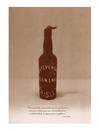Top 200 Cases Flashcards
(71 cards)
There must be an error before an appellate court may overturn a discretionary ruling.
House v The King (1936) 55 CLR 499
Gambling while bankrupt – 3 months hard labour – necessary for efficient litigation.

The court may dismiss a case summarily if “manifestly groundless”.
General Steel Industries v Comm’r for Railways (1964) 112 CLR 125
Patent for railway car – Crown immune under Patents Act 1952 (Cth) – requires “great care”.

Legislation must be interpreted according to the text, context and purpose of the statue, viewed as a whole.
Project Blue Sky v ABA (1998) 194 CLR 355
Inconsistent sections – 50% Australian content, NZ free-trade – read as whole, international obligations superior.

An unexplained failure to call evidence may lead to an inference it would not have assisted.
Jones v Dunkel (1959) 101 CLR 298
Truck collision – defendant driver not called – P’s evidence “more readily accepted”.

Ambiguity is necessary before surrounding circumstances can aid interpretation of a contract.
Codelfa Constructions Pty Ltd v State Rail Authority of NSW (1982) 149 CLR 337
Injunction to limit work – contract frustrated – controversy over Mason J’s “true rule”.

The more serious the allegation, the stronger proof required.
Briginshaw v Briginshaw (1938) 60 CLR 336
Alleged adultery – serious accusation – weak evidence of confession to investigator.

A failure to consider all relevant factors makes the administrative decision void.
Minister of Aboriginal Affairs v Peko-Wallsend (1986) 162 CLR 24
Grant to aboriginal tribe – didn’t consider detriment to mining operations – decision invalid.

Judicial review should not overzealously scrutinise unhappy phrasing in a decision’s reasons.
Minister for Immigration v Wu Shan Liang (1996) 185 CLR 259
Refugee claim rejected – persecution fear not well-founded – ‘decision’, not reasons, under review.

Courts have more latitude than tribunals to make mistakes.
Craig v South Australia (1995) 184 CLR 163
No legal representation – trial judge stayed – incorrect, but not “jurisdictional error”.

The High Court has entrenched jurisdiction to review for jurisdictional error.
Plaintiff S157 v Commonwealth (2003) 211 CLR 476
Privative clause – but s 75(v) - seperation of powers.

To be reviewable under the AD(JR) Act, decisions must be final or substantive.
Australian Broadcast Tribunal v Bond (1990) 170 CLR 321
Licence shareholder misconduct - helped decision licence holder not ‘fit and proper’ – stops pre-mature judicial review.

A decision maker must give an opportunity to respond to adverse information.
Kioa v West (1985) 159 CLR 550
Alleged illegal immigration ringleader – no opportunity to respond – natural justice / procedural fairness.

Appellate courts can only set aside findings of fact if glaring improbable or erroneous.
Fox v Percy (2003) 214 CLR 118
Car and horse collided – which was on wrong side of road – skid marks proved trial judge wrong.

Estoppel is available for a gratuitous promise made outside a contractual relationship.
Commonwealth v Verwayen (1990) 170 CLR 394
Represented would not rely on limitation period – withdrawn – 4 (estoppel), 2 (waiver).

The successful party is usually entitled to costs, but it is a matter of discretion.
Ohlack v Richmond River Council (1998) 193 CLR 72
Endangering koalas – public interest, arguable case, community concern – plaintiff lost, but no costs order.

Late, unexplained leave to amend pleadings may be refused on “case management” grounds.
Aon Risk Services v ANU (2009) 239 CLR 175
New defence on Day 4 – no explanation for delay – public confidence requires efficient use of public resource.

A decision can be quashed if so unreasonable no reasonable person could have made it.
Associated Provincial Picture House v Wednesbury Corporation [1948] 1 KB 223
Children under 15 not permitted on Sunday – must be “overwhelming” – not made out.

“But for” is relevant to causation, but it is ultimately a matter of common sense.
March v Stramare (1991) 171 CLR 506
Intoxicated driver – negligently parked truck – both a cause.

Breach of duty requires asking:
(1) was the risk foreseeable?
(2) what would a reasonable person have done in response (given likelihood, seriousness, cost and other duties)?
Wyong Shire Council v Shirt (1980) 146 CLR 40
Deep water sign - intended as border - water actually shallow.

To imply a term into a formal contract, it must be (1) reasonable and equitable (2) necessary for business efficacy (3) obvious (4) capable of clear expression (5) consistent with written terms.
BP Refinery (Westernport) Pty Lyd v Shire of Hastings (1977) 180 CLR 266
Decentralisation scheme - preferential local rates - implied term that sucessor company could benefit.

Unconsciousble departure from a promise can be estopped, in essence enforcing the promise.
Walton Stores v Maher (1988) 164 CLR 387
Sent contract - was told mere formality - when demolition 40% done withdrew.

A party will be estopped from raising issues it unreasonably failed to raise in earlier proceedings.
Port of Melbourne Authority v Anshun (1981) 147 CLR 589
Injured worker – both liable – Port didn’t rely on contractual indemnity first time.

It is unconscionable conduct to take unfair advantage of a special disability.
CBA v Amadio (1983) 151 CLR 447
Son misrepresented limit – no independent advice – bank knew, took guarantee anyway.

Fiduciary and contractual relationships can co-exist, but a fiduciary relationship is unlikely in an arms-length deal.
Hospital Products v USSC (1984) 156 CLR 41
Australian distributor – copycat product, stole customers – no fiduciary, but breach of pre-contractual promise.















































